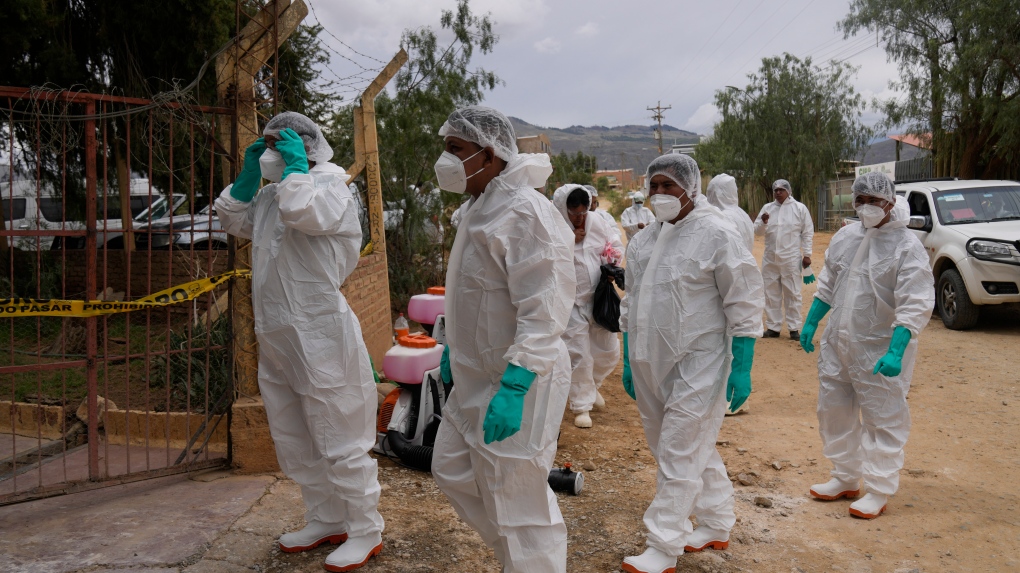The world's leading experts on influenza met this week to discuss the threat posed to humans by a strain of H5N1 avian flu that has caused record numbers of bird deaths around the world in recent months.
The group of scientists, regulators and vaccine manufacturers meets twice a year to decide which strain of seasonal flu to include in the vaccine for the coming winter season, in this case for the northern hemisphere.
It is also a chance to discuss the risk of animal viruses spilling over to humans and causing a pandemic. At this week's meeting, H5N1 clade 2.3.4.4b was a key topic, the World Health Organization (WHO) and global flu experts told Reuters.
"We are more prepared (than for COVID-19), but even if we are more prepared, we are not yet prepared enough," Sylvie Briand, WHO director of global infectious hazard preparedness, said ahead of the meeting. "We need to really continue the efforts for a flu pandemic."
Briand in a briefing after the meeting said that the recent rise in cases in birds and mammals was "worrying" and that the agency was working with Cambodia after two confirmed human cases of H5N1 were found in one family there.
They are trying to determine if the family members were exposed to the virus through the environment — such as exposure to birds or other mammals — or if there was human-to-human transmission.
Threat to humans remains low, officials say
Disease experts have raised the idea that the virus would need to change for it to be conducive to human transmission.
Experts have been tracking H5N1 clade 2.3.4.4b since it emerged in 2020 and recent reports of mass deaths in infected mammals from seals to bears, as well as potential mammal-to-mammal transmission on a Spanish mink farm last year, have raised concern.
However, there have been very few human cases, and the WHO currently assesses the threat to humans as low.
"This is a natural experiment playing out in front of us, and I don't think we are complacent," said Nicola Lewis, director of the WHO Collaborating Centre on Influenza at the Crick Institute in London. Speaking before the meeting, she said it would include assessments of the situation worldwide.
WATCH | 'Explosive' avian flu surge hits global bird populations
'Explosive' avian flu surge hits global bird populations
Global bird populations are being ravaged by a deadly strain of avian flu, wiping out flocks of domestic poultry and killing wild birds. Some researchers warn the virus could eventually evolve to better infect humans and potentially start a future pandemic.
Experts discussed vaccines, virus strains
Experts also discussed potential vaccine development.
WHO-affiliated labs already hold two flu virus strains that are closely related to the circulating H5N1 virus, which could be used by vaccine manufacturers to create a human vaccine if needed. One of them was added after the previous WHO flu meeting in September 2022, and the experts decided at this week's meeting to add another subtype that more closely matches the virus spreading among animals.
A number of companies that produce seasonal flu vaccines can also make pandemic flu vaccines. For example, GSK and CSL Seqirus are already working with the United States Biomedical Advanced Research and Development Authority (BARDA) to test shots based on one of the closely related strains.
Having these strains ready could save about two months in the development of a vaccine, said the WHO's Briand.
But getting enough vaccine developed quickly would still remain a challenge in a pandemic situation, the experts said.
Adblock test (Why?)
World 'not yet prepared enough' as H5N1 avian flu strain keeps spreading, WHO official warns - CBC News
Read More








Comments
Postmedia is committed to maintaining a lively but civil forum for discussion and encourage all readers to share their views on our articles. Comments may take up to an hour for moderation before appearing on the site. We ask you to keep your comments relevant and respectful. We have enabled email notifications—you will now receive an email if you receive a reply to your comment, there is an update to a comment thread you follow or if a user you follow comments. Visit our Community Guidelines for more information and details on how to adjust your email settings.
Join the Conversation